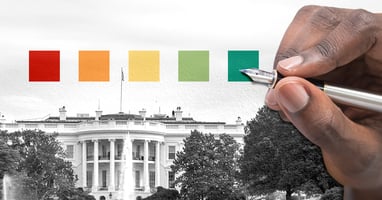During a health crisis like the COVID-19 outbreak, people seek honest and accurate information...
In a time of increased political polarization, it stands to reason that people would have divergent views on all sorts of issues, and their perspectives about the ongoing COVID-19 pandemic are no exception. A recent installment of IntelliSurvey’s “Life in the Time of COVID-19” online survey series, conducted on 8 May, 2020 among 938 adults in the UK, asked a variety of questions about people’s experience of the COVID-19 pandemic, and demonstrated some notable differences based on political identification.
Parties and demographics in the UK
The UK has a more diverse set of political parties than the US, although its government has been almost entirely in the control of either the Conservative or Labour Parties since the end of World War II. This diversity is reflected in the political affiliations reported by participants in the survey.
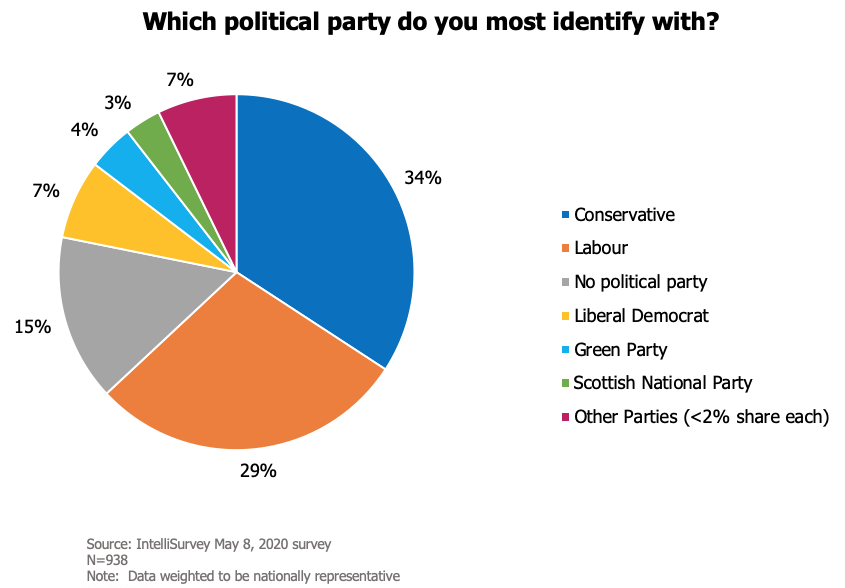
Currently, the Conservatives are the ruling party; all other parties being known as opposition parties, or the Opposition, collectively. We found statistically significant differences in people’s experiences of the pandemic when comparing Conservative participants (n=321) with an aggregated group that includes all non-Conservative participants (all opposition parties plus “No political party,” n=617).
While it is worth noting that the Conservative party tends to skew older than other UK parties (average reported age of 52.5 years, vs. average age of 43.8 years for all others)—and that age may play a factor in some of the contrasts noted—we found that there were fewer statistically significant contrasts when cutting data by age ranges. An example of the greater polarization along political lines is found in people’s relative willingness to trust various politicians and government spokespeople.
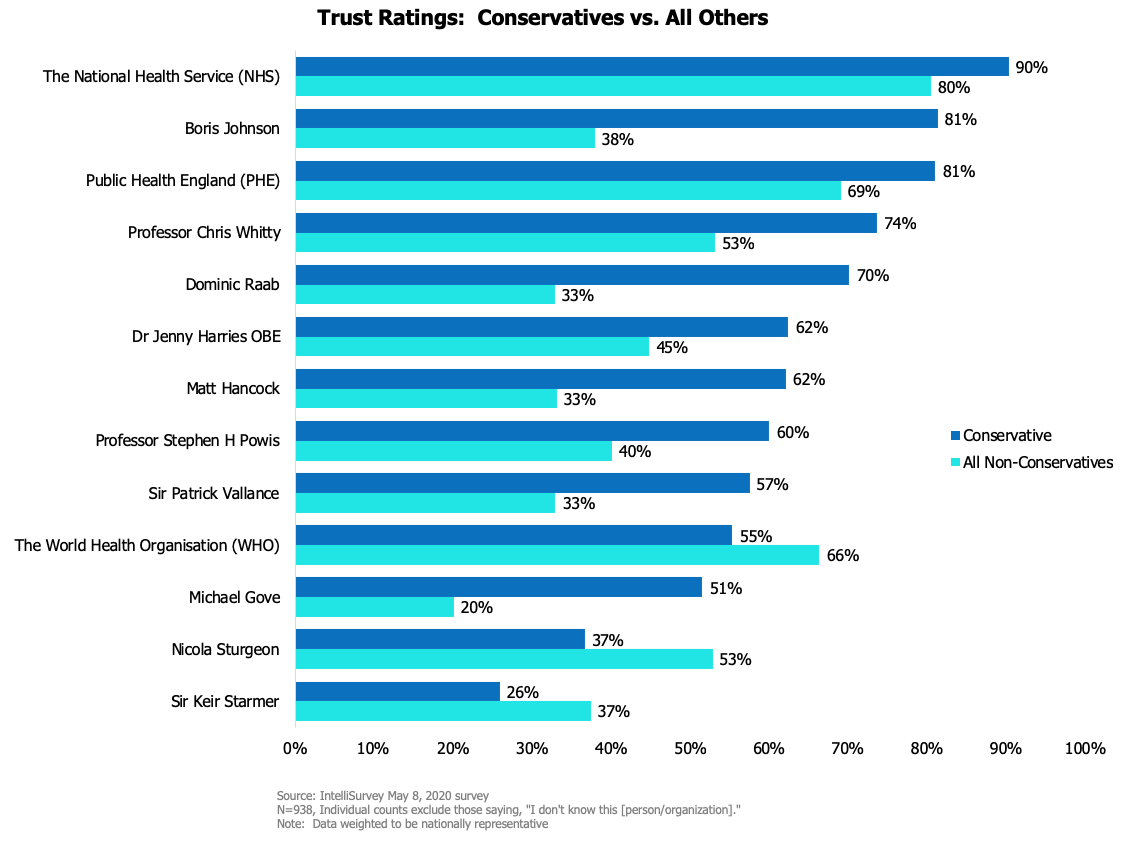
The top 5 levels of contrast between Conservative and non-Conservative trust ratings all occurred among current Conservative party leaders and prominent spokesmen for the Conservative government’s COVID-19 response, with Prime Minister Boris Johnson and his Foreign Secretary, Dominic Raab (who was Johnson’s deputy during his COVID-19 hospitalisation), showing the greatest trust disparities (43% and 37% difference respectively).
Social Conservatism and Social Distancing
UK participants generally showed higher propensity to comply with social distancing guidelines – 73% of respondents report “always” complying, compared with 59% of US participants surveyed on the same date (IntelliSurvey May 8, 2020 US survey, N=1015, weighted to be nationally representative). Given that Conservatives have a higher tendency to favor traditional social values and the idea of national government, it is perhaps unsurprising that the rate of “always” complying is even higher among Conservatives – 79% vs. 70% of non-Conservatives “always” complying.
The “stiff upper lip” philosophy associated with traditional British values seems also to be illustrated by Conservatives’ tendency to express both the need for, and the willingness to comply with social distancing for as long as necessary. When asked how long distancing will be needed, Conservatives were 10% more likely than non-Conservatives to say, “Indefinitely / as long as necessary.” When asked how long they think they can continue distancing, they were 11% more likely to say, “Indefinitely / as long as necessary.”
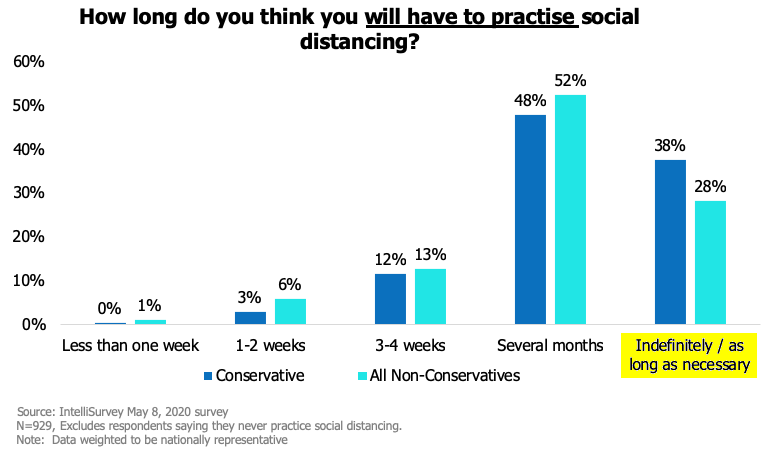
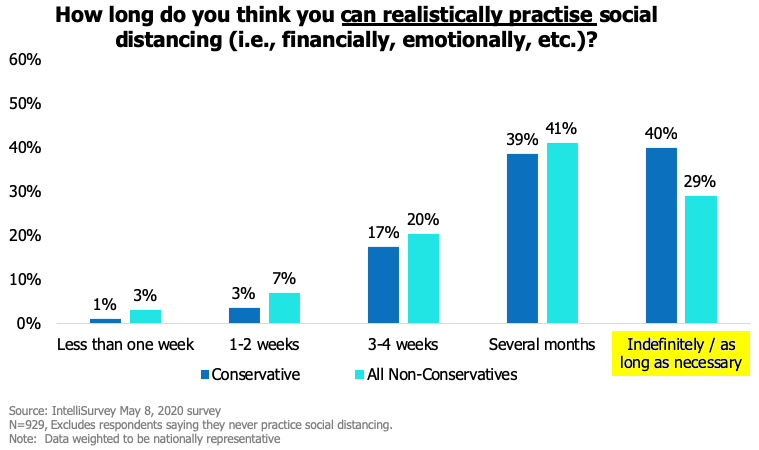
Less Need for Drastic Measures, More Optimism
When participants were asked how they feel about “the state of the world today,” we did not see significant differences by political affiliation – 60% of all respondents selected one of the two negative emoticons (“Sick” or “Sad”) over the neutral/positive ones. However, we found Conservatives to be significantly more optimistic about “the state of the world a year from now” – 21% of Conservatives selected the positive emoticon (“Smile”) vs. 14% of non-Conservatives, while non-Conservatives were much more likely to select one of the two negative ones (33% of non-Conservatives vs. 20% of Conservatives).
One possible factor in participants’ optimism about the future is the extent to which they have had to undertake drastic financial measures or to seek additional sources of assistance because of the pandemic. While the relative utilization of specific drastic measures did not show statistical significance, a majority of Conservatives reported that they have not undertaken any drastic measures. Overall, a picture emerges of Conservatives as more likely to “stay the course” regarding social distancing and financial resources as a path to a better tomorrow.
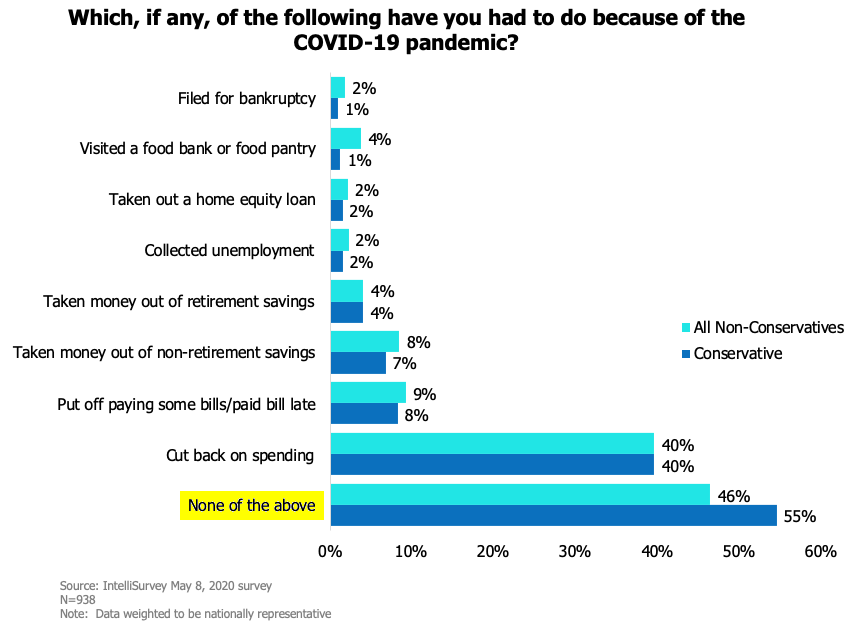
Respondents for this survey were collected via Lucid Marketplace.


